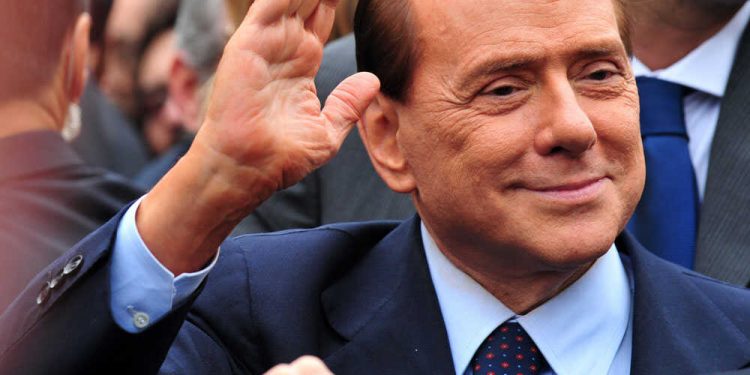The death of Italy’s Silvio Berlusconi, former Prime Minister and one of the most remarkably colorful personalities of that country since World War II, marks the end of an era of thrills and fun. At the same time he leaves a dangerous legacy that brackets him with the likes of former US President Donald Trump, Russia’s Vladimir Putin and Israel’s Benjamin Netanyahu, apart from several other leaders in different countries with mass appeal but with exposed autocratic tendencies. The stuff that leaders of the ilk of Berlusconi are made of is immense personal wealth, control of the media, carefully-crafted personality cult, mass appeal, brazen disregard for the laws of the land, financial irregularities and penchant for changing the laws to evade punishment. Added to the list is an unabashed display of amorous pursuits and involvement in sex scandals. His infamous ‘Bunga Bunga’ parties with truckloads of young women brought in were always newsworthy.
Berlusconi’s career was tainted by countless allegations of corruption, tax fraud conviction and mafia links. A Wikipedia page on the legal cases he faced runs to over 18,000 words showing how deeply he was mired in controversial and illegal business deals. Yet, he earned the distinction of being one of the dominant figures in Italy’s postwar politics. The Milan prosecutor’s office, which handled many criminal cases in which Berlusconi was involved, said a few hours after his death that he was “a man who marked the history of Italy.” The former Prime Minister died with one unresolved case still pending.
Berlusconi was accused of false accounting, bribing tax officials and magistrates and involvement in the mafia bomb attacks of 1992 and 1993. Yet, despite these very serious allegations, he had a remarkably successful political career. This has made some experts comment that he represented certain typical Italian characteristics that do not make much of rules and value unconventional, uninhibited approach to life.
At a time when social media has become a powerful tool in the hands of politicians, especially those who thrive on polarisation politics, Berlusconi could be regarded as a forerunner in the art of propaganda and demagogy. He began first as a crooner, a showman and then became a real estate giant. Soon, he established his media empire and also became the owner of one of Italy’s big football clubs. He manipulated and dominated Italian politics for over two decades.
Berlusconi’s sexual escapades eventually tarnished his image and he gradually yielded political space to far-right groups. This was because the liberal democrats had long become discredited in Italian politics for their mismanagement of economy and incompetent governance. He represents a brand of politics where there is no Opposition politician of stature to challenge the main protagonist who charms the electorate with his oratory and a captive media. So many countries, including India, are witnessing such a political phenomenon.
He cultivated friendship with leaders of other countries, including Putin. His intimacy with the latter was such that he even supported Russia’s invasion of Ukraine, which was an embarrassment for Italy’s PM Giorgia Meloni who does not subscribe to his view, though his party is her alliance partner.
No wonder Putin was among the first foreign heads of state to pay his respects, in a rare, lengthy letter to Berlusconi. His words show the affinity between the two autocratic leaders: “For me, Silvio was a dear person, a true friend. During each of our meetings, I was literally charged with his incredible vitality, optimism and sense of humour.”
Berlusconi’s sense of humour often bordered on narcissism and salaciousness. He joked about his funeral at the Church of the Holy Sepulchre in Jerusalem, where the body of Jesus had been brought after crucifixion. In a humorous vein, he promised to bring a “bus full of whores,” for the footballers of his club, if they could win the championship, which they did.
The world has lost a dangerously charming and colourful politician.






































